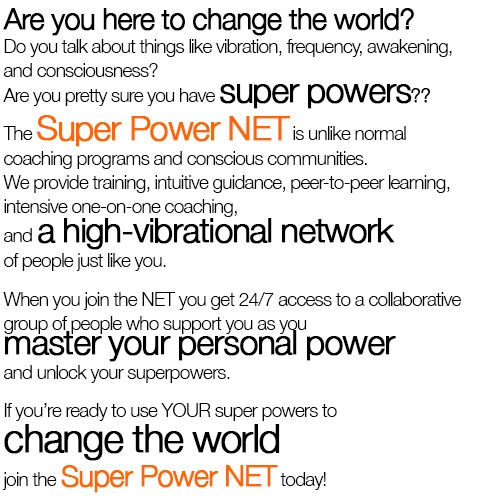
Hello, everyone. This is Tonya Dawn Recla, your Super Power Expert, and I have with us today this … a delightful person. His name is Mac Prichard, and he’s just a lot of fun. He’s got this real, solid kind of business composure. He looks really good on paper. He’s got the business pieces down, all of it. His book is … Well, he’s got lots of books. Anyway, the book that’s out is the Land Your Dream Job Anywhere, and actually, Mac, let me ask you about that. You have Land Your Dream Job Anywhere, right?
Yes. I do, Tonya.
Okay. Perfect. Okay. Was I correct in saying you have lots of books out, or am I prophesying what comes next? Because it’s been known to happen.
One foot in the past and another in the future. We have two books. The other one is called Land Your Dream Job in Portland.
Perfect.
I’m speaking to you from Portland, Oregon, so that’s where we started. Certainly, I hope to produce more books in the future.
I love it. I have to check in sometimes with, okay, which version of reality am I talking about here? Anyway, that’s an occupational hazard of superpowers.
It is.
But anyway, I’m not done bragging about you yet. He’s the founder and publisher of Mac’s List. More than 80,000 people a month visit this site. For those of you who have websites and track that kind of thing, that’s really impressive, those numbers. Anyway, without further ado, please join me in welcoming back to the show … Welcome, Mac.
Well, thank you, Tonya. It’s a pleasure to be on the show.
Oh. Well, awesome. We are so delighted to have you, and we’re going to be talking today about the concept of social entrepreneurship. That’s part of the reason why I did the introduction the way that I did because I think it’s … I don’t know about you, but I really see business shifting, in the sense that it used to be that business was business. It’s kind of black and white, product or service, and that’s it, but with the advent of the internet and social media we have at our fingertips so much information about businesses, and their actions, and behaviors, and this concept of transparency’s a big deal.
So, there seems to be this growing trend of wanting to know what’s the heart and soul of a business practice. I’d imagine that comes up as people are looking for jobs. There are all these polls out there that what constitutes a dream job? I think for a lot of people they want to know what the social entrepreneurship aspect is of a business. Would you say that’s accurate?

I’m a connector.
I would. Our community, Mac’s List, gives people information about jobs that matter, jobs that offer purpose and meaning. Whatever your profession, whether it’s blue collar or white collar, we all want work that makes a difference. It could be about creating social change, but it could be just about being part of a good community and being part of what’s happening in your hometown. There’s a lot of different ways you can get that purpose and meaning, but it’s something everybody I think hunger for.
I love that. For all of you entrepreneurs out there, because we are talking about social entrepreneurship, I think it’s important as you’re building companies, even the corporations and stuff who listen to those individuals, to be thinking about if your quest is to kind of create this product or service to bring out into the world, and you know at some point you’re going to have employees and everything. I think it’s important to look at it from that … look at Mac’s information from that angle. What are you building, and are you building something that people will want to work toward and to work with you in? Those of you who are seeking jobs, I think that’s an important aspect as well is to ask yourself, “What is it that I’m really seeking and hungering to be a part of?” Mac, without getting too deep into that just yet, let’s go ahead and ask you, what are your superpowers?
Well, three came to mind when I thought about this question. I’m a connector, I’m a communicator, and I’m an organizer. I’ve been able to use all three of those superpowers in the two businesses I run today. One is Mac’s List, which we talked briefly about, which helps people find work that matters. The other is a public relations company, Prichard Communications, that works with social change organizations, foundations, nonprofits, public agencies. Both, Tonya, are what are called certified benefit corporations. They’re part of this global movement of business as a force for social good.
Wow. How does that work? I’ve never heard of that before, but it sounds like an amazing way to kind of tie in the efforts of multiple entities, very collaborative, which we appreciate here at Superpower Experts. How does that work?
Well, a certified benefit corporation is a company, it can be small or large, that has gone through a process of evaluation that looks at its business practices. There’s a third party organization. It’s called the B Corp Lab. It’s based in Pennsylvania. They give you a series of questions. It’s not a formal audit, but it’s a review of how you do business. They’re called B Corps for short. What distinguishes a B Corp from a traditional corporation is that we just don’t manage for the bottom line alone. Profit matters. You need profit to pay good salaries, good benefits, and help your employees with retirement, but you also manage for community benefit.
Without getting into a lot of detail, right now the way US corporate law works is unless you are a certified benefit corporation, you have a responsibility to manage the bottom line alone. If you don’t do that, you can run afoul of the law. Companies have been put in positions where they’ve been forced to make decisions that produce more profit, but might not be good for the community as a whole. With a certified benefit corporation you adopt a different governing structure and a different way of doing business, and you consider the community as well as the bottom line when you make business decisions.
Oh. Interesting. I know some of our listeners are going to be really fascinated with that, so thank you for that information. Let’s talk a little bit about how you assist people, through Mac’s List and other ways, with kind of seeking, finding fulfillment in how they do work in the world.
Well, I got into this work, because I started an informal job list. I shared job postings with people. Over time, more than 15 years, it became a website that now attracts 80,000 people, but along the way, I met a lot of job seekers, Tonya, and I learned a fact that many of your listeners may not know, which is that no matter … most jobs don’t end up on job boards, and it’s not because there’s a shortage of job boards. In fact, there are estimates out there that there are as many as 40,000 what are called niche job boards. These are very small, focused board, like mine. But most jobs, as many as 8 out of 10, are just filled by word of mouth. That means that if you’re not part of those conversations, you’re missing out on as many as 8 out of 10 of the opportunities that are out there.
We have a job board. We’re very proud of it. It offers listing in the Pacific Northwest, but we’ve built up a blog, a podcast, the books you and I mentioned earlier, as well as events that teach people how to look for work, and if you’re going to do that effectively, you’ve got to know what you want, what your goal is, or at least the goals you want to explore. So, that’s become a big part of our business at Mac’s List in the last few years is helping people figure out what they want and then learn how to navigate that what’s called the hidden job market, those jobs that are filled by word of mouth, so that they can not only find those jobs but then get them.
Awesome. Where can people find Mac’s List?
Just go to the web, MacsList.org. You’ll see the job board on the home page. The blog, and links for the podcast, and other educational materials are there. Most of our content is free. We do have a few courses about specific job-hunting skills, but again, we found that by giving away our vast information, we’re not only serving the community, but we’re growing our audience as well.
Beautiful. Beautiful. Do you work with people individually, one-on-one, in groups? Do you do additional work, other than having people come to the website, and the books, and the podcasts?
We do events where we do connect with the community in person. We do those largely in Oregon, though we do online events as well, we’re not career coaches. We certainly know great career coaches and resume writers and others who can help people with goal setting and just the tactics of job hunting. We refer people to those experts who are partners of ours.
Oh. Beautiful. Beautiful. What a phenomenal service that you’re offering to the world. How did you get into this? How did you get started on that kind of track?

Service is an important value I learned from my parents.
Well, my career has been in communications, especially in politics and government. I’m turning 59 next month, and I worked for elected officials. I was a speechwriter for a governor of Oregon. Again, I’m speaking to you from Portland, Oregon. I worked the city hall here in Portland for a mayoral candidate. I worked on four different presidential campaigns over the last 30 plus years, as well as other state and local races. The constant that has run through my career, before I started my Public Relations company 10 years ago and started Mac’s List more than 15 years ago now, is service. Service was an important value that I learned from my parents, and my family, and the community where I grew up in the Midwest, and the importance of giving to others.
I started Mac’s List as a way of being of service to others. I would share job postings. It was also candidly a form of professional networking. I wanted to stay in touch with contacts at the state capital here in Oregon that I had known, but I was leaving the capital to take a job in Portland about 45 miles away. Nobody complains about getting a job posting, Tonya. This list began as an informal thing for a few dozen friends and colleagues, and now we do have a weekly newsletter that reaches 25,000 people every Tuesday, but it started out as a very informal list of a few dozen names.
Oh. How fascinating. You know, it’s interesting to me that part of your start there was in politics, and you can say the word politics and service in the same kind of capacity. I think that the bias is that we’ve kind of lost that connection. Maybe that’s just because the federal scene has taken such a front and center kind of space in our minds, but I do think that a lot of folks get into the county, and city, and local politics, because of that service aspect. Are you still seeing that in those levels? Are you observing that, or do you stay involved with it at all?
I certainly stay involved in politics, and I do see that there are more opportunities for change at the local level, particularly at cities and counties. You’ll see your city councilors, and your mayor, and your county commissioners, particularly if you live in a small or medium-sized town, at the supermarket, so politics is very personal. Your members of Congress are way up there at 40,000 feet. I think that the purpose of government is to solve problems, and sometimes it works well. Sometimes it doesn’t, like any institution, whether it’s a university, or a corporation, or a faith community. So, there are always lots of good opportunities to do good in government, and sometimes there aren’t. If you’re interested in social change, often particularly state and local government is a good place to do that.
Beautiful. Beautiful. Well, we’re going to take a short break. You’ve been listening to Mac Prichard. We’re talking about social entrepreneurship. When we come back, we’re going to tackle some of those key points and how you can find your dream job and look for that kind of fulfillment. Stay tuned, and we will be right back.
To listen to the entire show click on the player above or go to the SuperPower Up! podcast on iTunes.
Podcast: Play in new window

